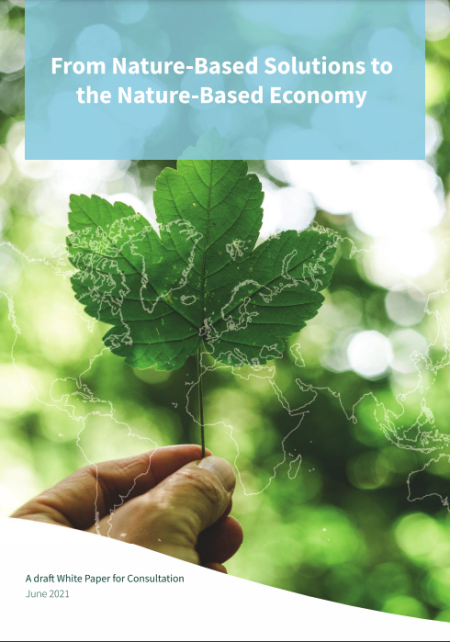
Resource description:
Decades of research and more recently public policy recognise that current economic practices are not compatible with a healthy planet. The European Green Deal aims to decouple economic growth from resource usage, decarbonise industry and do this in a fair and just way for society. Nature-based solutions (NbS) to address societal challenges have been identified as an important policy instrument to achieve the aspirations of the European Green Deal and other key policy objectives such as those set out in the EU Biodiversity for 2030 Strategy and the ambitions of “building back better” from the impact of COVID-19 in the EU Recovery plan. The European Commission identifies nature-based solutions (NbS) as those solutions to societal challenges that are “inspired and supported by nature, which are cost-effective, simultaneously provide environmental, social and economic benefits and help build resilience. Such solutions bring more, and more diverse, nature and natural features and processes into cities, landscapes and seascapes, through locally adapted, resource-efficient and systemic interventions” (Faivre et al., 2017). Nature-based solutions provide multiple benefits for biodiversity. While much focus to date has been on the environmental or social benefits of NbS, less attention has been paid to their economic potential and their role in a just transition to the type of sustainable economy envisaged in the European Green Deal.
This White Paper addresses this imbalance by proposing a paradigm shift - a new approach to valuing natural capital and to enabling its incorporation in the economic system.
This document is a synthesis of a longer background report under preparation by the Nature-Based Economy Working Group of Task Force III of the European Commission.
Global goals:
-
8. Decent work and economic growth
-
9. Industry, innovation and infrastructure
-
11. Sustainable cities and communities
-
17. Partnerships for the goals
Licence:
- Public/open source